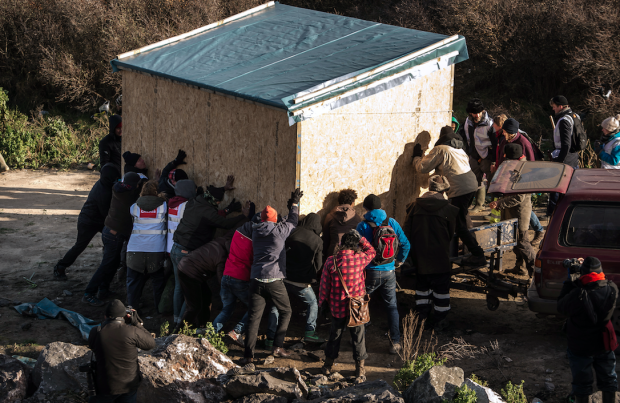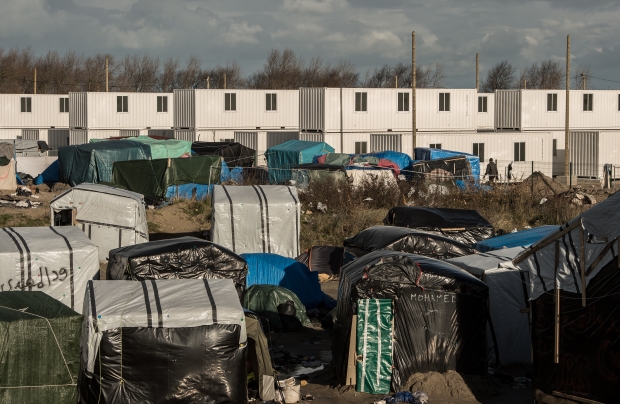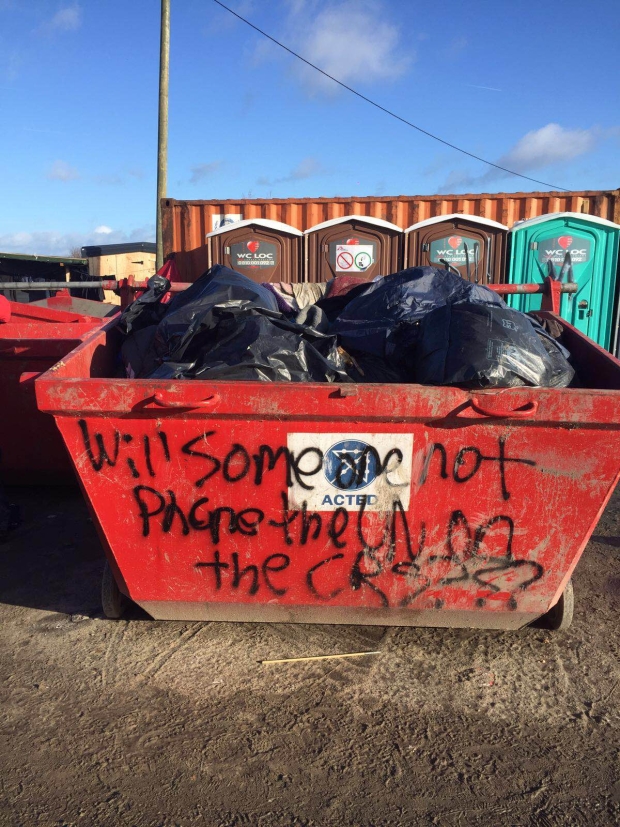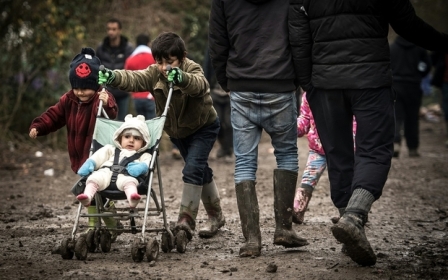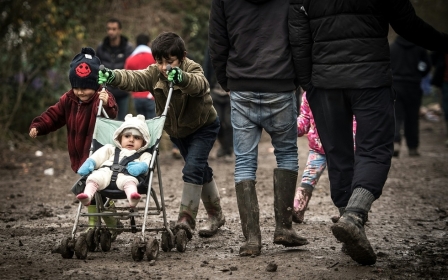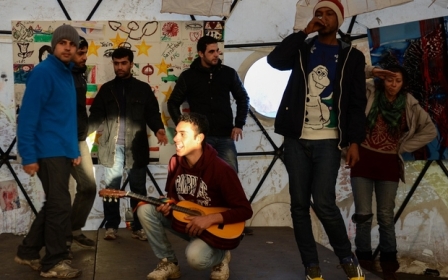Refugee families relocated as Calais standoff subsides
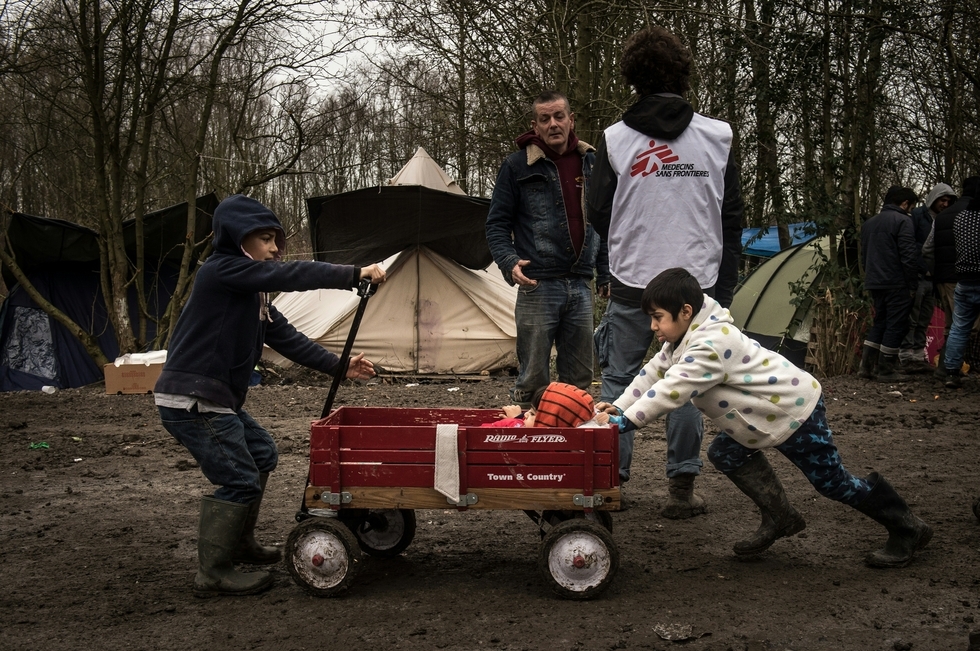
The standoff between French authorities and migrants in the notorious Calais migrant camp known as the "Jungle" appears to have temporarily abated, only hours before bulldozers were scheduled to roll in early Monday, but tensions remain and threaten to escalate.
While aid groups earlier in the week said it would be all but impossible to relocate an estimated 1,300 to 1,600 camp residents who were living in areas earmarked for clearance by the authorities, volunteers say they have been working around the clock. Late on Saturday they announced all those who were at risk of having their shelters torn down had been moved.
“The superhuman efforts of volunteers and refugees alike mean that the entire 'buffer zone' marked out by the sub-prefecture is now cleared of all occupied dwellings,” Help Refugees, a UK aid group working in Calais and neighbouring Dunkirk, said in a statement late on Sunday.
“Everyone has been safely moved and re-settled and the entire relocation process has taken place with respect, dignity and co-operation,” the statement said.
But while the immediate threat seems to have passed, tensions continue to fester amid mistrust between the migrants and authorities.
Overnight on Friday, two bulldozers stationed outside the camp were set ablaze and destroyed. There have also been reports of graffiti and curses directed at British Prime Minister David Cameron and the French and British governments, French police told the Telegraph.
On Sunday, a video appeared that seemed to show migrants in the camp attacking a Dutch journalist who'd been documenting the events. Details about the alleged incident are still emerging.
Camp community leaders, who've been trying to coordinate the migrants’ response to the crisis, have repeatedly stressed they planned to oppose the relocation peacefully.
Last week, a container camp set up to house migrants and refugees in official shelters run by aid groups was opened to much fanfare.
Aid groups said the new accommodation would provide warmth and safety, but refugees and migrants say there is not enough space for everyone and worry that if they move to the shelters they will be forced to apply for asylum in France. Few are willing to give up their dreams of travelling to the UK.
Sadat, a 24-year-old from Afghanistan, told Middle East Eye on Friday that police had visited his tent to tell him to move, but he had “nowhere else to go”.
“I’m on the long (waiting) list for the containers as there are not enough for everyone yet - not all of them are finished,” he said.
Khan, a 21-year-old refugee also from Afghanistan, said he was worried about what would happen next.
“The police don’t care about us; they say that their containers are meant to help us, but they just want to put lots of people in a room,” he told MEE. “They don’t care about our needs or who we want to live with.”
The new camp being built at the northern French port will consist of 125 containers, each with beds for 12 people, but officials said that as of Friday evening only 173 people had moved in.
Between 4,000 and 5,000 people are believed to be residing in the unofficial camp, with volunteers saying that dozens more were arriving daily and were in need of supplies and assistance, especially with a fierce snow storm due to lash northern France in coming days.
Nico Stevens, a volunteer with Help Refugee based in Calais, said that both the French and British governments had to work together to find a lasting solution to the crisis.
She told MEE French police had grown increasingly harsh, often firing teargas at refugees and migrants.
She also said that since Christmas, the camp - which is home to hundreds of women and children - has been subjected to assaults from far-right and anti-migrant groups who shout abuse and have launched fireworks into the camp, including into areas where families sleep.
Authorities meanwhile insist the security situation must be brought under control and most of the migrants and refugees must be rehoused in official aid group-run camps. Reportedly, they hope to reduce the unofficial camp’s size to no more than 2,000 people.
Migrants and refugees have caused chaos trying to board trains and lorries in a desperate attempt to reach Britain. Some have been killed trying to make the journey, crushed to death in vans or killed in the Channel Tunnel.
New MEE newsletter: Jerusalem Dispatch
Sign up to get the latest insights and analysis on Israel-Palestine, alongside Turkey Unpacked and other MEE newsletters
Middle East Eye delivers independent and unrivalled coverage and analysis of the Middle East, North Africa and beyond. To learn more about republishing this content and the associated fees, please fill out this form. More about MEE can be found here.


